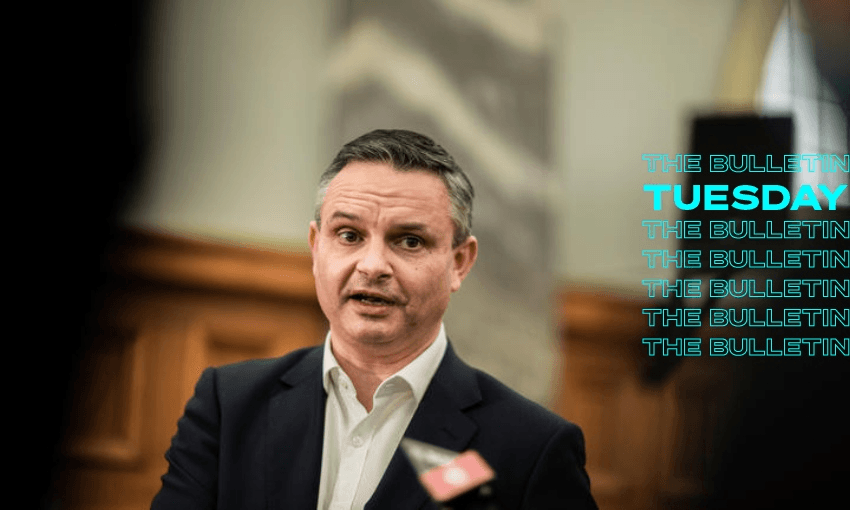Climate change minister James Shaw reveals country’s first three carbon budgets kicking off historic ten days for climate policy, writes Anna Rawhiti-Connell in The Bulletin.
Emissions budgets released ahead of plan
Climate change minister James Shaw revealed the country’s first three carbon budgets yesterday. They span the periods between 2022–2025, 2026–2030 and 2031–2035. The budgets set a limit on the amount of greenhouse gas that can be emitted into the atmosphere. The budgets are based on meeting requirements in the Zero Carbon Act which was passed in 2019 and established the climate change commission. The full plan is out next Monday. RNZ’s climate reporter, Hamish Cardwell has a useful timeline of the path to this point.
National party supports carbon budgets
In a statement from Christopher Luxon, the National party has endorsed the budgets. “Climate change is a huge challenge. National is fully committed to emissions targets including net zero by 2050,” Luxon said. Te Pāti Māori has said the budgets aren’t ambitious enough while Act has said they don’t support them, maintaining their position that a cap within the Emissions Trading Scheme would be sufficient. Shaw has worked to obtain bipartisan consensus on the plan to ensure certainty as governments change. There will be a special parliamentary debate on the budgets on Thursday.
Error spotted by journalist changes budgets
In a mistake attributed to “genuine human error” in March, the ministry of primary industries supplied information to the government that claimed new forests could not be planted without significant deforestation. The government extended the 2022-2025 carbon budget to account for this, adjusting it to 292m tonnes, 2m tonnes more than was recommended by the climate change commission. The error was reported by Stuff journalist Olivia Wannan. Shaw resolved to investigate the issue and the carbon budgets are now back in line with the original recommendations made by the climate change commission.
Half price public transport fares may be here to stay
Finance minister Grant Robertson has already flagged that a significant new spend in the budget will go towards meeting our climate goals. Stuff’s Ben Strang reports that the idea of making the public transport fare discount permanent has been part of budget discussions. The government introduced the nation-wide three-month discount in response to rising fuel prices. Auckland Transport reported patronage figures yesterday. There were 1.22 million trips on public transport last week, the largest number since August 2021. More time may be required before we can see how much impact half-price fares have had as the lifting of covid restrictions will no doubt have played a part as well.
Congestion charging on the cards for Auckland
As reported by Thomas Coughlan at NZ Herald this morning, the government is likely to announce that congestion charging will be introduced for central city roads in Auckland. Todd Niall at Stuff has details of a report from the Helen Clark Foundation published this morning. The report says congestion charging could be fairly implemented in Auckland now but more work is required before it could be done in Wellington. Foundation fellow, Tom James said an initial cordon around Auckland’s city centre will meaningfully reduce traffic and emissions and be equitable.


